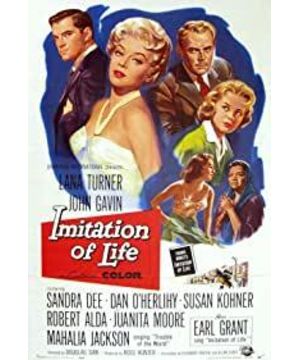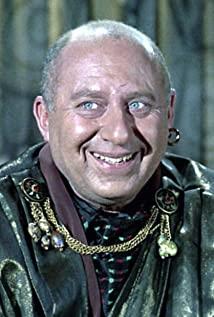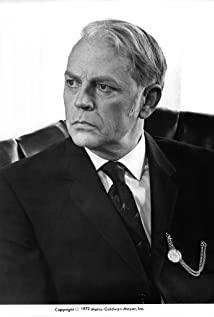Double bill time! Two film versions of Fannie Hurst's contentious weepie IMITATION OF LIFE, poignantly touches the raw nerve of the star-spangled, inveterate racial discrimination through a brace of mother-daughter dyads, one white, one black, but the latter is stigmatized with a more taxing streak.
John M. Stahl's 1934 Black-and-White version (both versions are made from Universal pictures, incidentally) sticks to the milieu of the source novel, business-savvy white widow Bea Pullman (Colbert) takes in black housekeeper Delilah Johnson (Beavers) , and capitalizes on Delilah's secret family pancake recipe, shefrogs from a dead-end maple syrup peddler to a high-flying entrepreneur of pancake flour within a 10-year stretch, meanwhile vouchsafes a 20% interest to Delilah, whose modest make-up leap prefers maintaining the status quo to take care of Bea and her daughter Jessie (Hudson, a doe-eyed smart alec). Notwithstanding that the life of Delilah and her daughter Peola (Washington) is on the easy street by then, there is a catch here, Peola is a fair-skinned girl, who spurns her black parentage and tries every fiber to pass as a white girl,often her act is thwarted by Delilah's presence and the tension aggravates through time, until a harrowing aftermath in the wake of Peola's go-whole-hog severance, designated to turn on spectator's waterworks.
There is a deep psychological causation in Peola's plight, which might elicit different reactions, her identity limb is caused by the effacing of a skin-deep, visual distinction that makes her an outlier who doesn't know where she belongs, is it entirely her fault to pursue the entitlement she isn't bestowed? Certainly not, her outrageous hatred of being black is the fruit borne out of a sweepingly toxic, white supremacy-breeding environment that has no place for her ilk (especially for girls, whose main perspective is to marry well), like every marginalized individuals, she is punished for who she is and it is understandable during the pre-civil rights era (the novel was written in 1933),the story beats the drum for the thicker-than-blood maternal sacrifice and belated repentance in lieu of a more progressive message catering to today's taste (for instance, what could have happened if Peola chooses to embrace his blackness for a change?).
In Stahl's rendition, Peola's selfish determination comes off more intrinsic because little contextualization is applied to lend her any amount of sympathy, although Fredi Washington (a real-life light-skinned black girl and the movie would virtually hamper her big screen career) has a fiery disposition brimming with indignation. Louise Beavers' portrayal of Delilah, after watching her counterpart in Sirk's remake, is at best serviceable, one gnawing fact is that Louise is too young for the role (she was only 31 years old), and her lack of conviction as a middle-aged, heartbroken mother is not helped by the fact that Fredi is only one year junior of her, regardless of their complexions, they do not register as a mother-daughter pair, period.
So, the 1934 movie leans more towards a posh star vehicle for Claudette Colbert, the sympathetic white Good Samaritan, fulfills her all-too-easy American dream by riding on a gravy train and soliciting free advice (the operative words are “bottle it! ”, Ned Sparks has a wonderful time being all piqued and sarcastic as Bea's business counselor) and spreads her gratitude without condescension, on paper, it seems a tough nut to crack, but Colbert holds court thoroughly and charms us with spectacular alacrity, especially when she is coupled with an impeccably debonair Warren William as her love interest Steve Archer, who equally effortlessly, albeit obliviously, excels in getting Jessie head over heels for him. But compared with the life-and-death separation between Delilah and Peola,their strife can be ironed out with a bantamweight sacrifice which only requires the man to cool his heel for some years, the irony is pungent, not to mention a particularly telltale scene of an ascending Bea and a descending Delilah on the spiral stairs simultaneously, genuine friendship can sprout out of two disparate souls, as long as it is the white matron who holds the upper hand.
The auteur maudit Douglas Sirk bowed out the Tinseltown and returned to his homeland Germany after this remake in 1959, which becomes his swan song, in his glittery (diamonds are in the background of the opening credits) re-imagination, the capitalistic fairy-tale is wholly jettisoned, along with Steve's quaint ichthyologist vocation, the story-line is transposed to the 50s, widow Lora Meredith (Turner, enterprisingly changing her high-end wardrobe as frequent as her character's required moods) is a struggling Broadway actress and doesn' t need the help from her black help Annie Johnson (Moore) to attain her johnny-come-lately success in the cutting-edge, squalid showbiz, remarkably with her integrity intact all the same, rebuffing the advancement of the unscrupulous agent Allen Loomis ( Alda) with a virtuous face does all the trick.When her on-and-off boyfriend Steve Archer (John Gavin, or is it Louis Jourdan? I see doubles!), a photographer-turned-businessman, gets her teenage daughter Susie (Sandra Dee, spirited with her wonderful faux-naïf earnestness ) infatuated, she doesn't have the luxury to play martyr and their conciliation has a more perceptive leaning that outstrips the original, and curiously mirrors Turner's own turmoil, she was freshly underwent through a daughter-and-stepfather tragedy in real life.and curiously mirrors Turner's own turmoil, she was freshly underwent through a daughter-and-stepfather tragedy in real life.and curiously mirrors Turner's own turmoil, she was freshly underwent through a daughter-and-stepfather tragedy in real life.
Of course, the scumptiously soapy flee-and-catch go-arounds between Annie and her light-skinned daughter Sarah Jane (Kohner, a white girl passes as mix-raced) upstage anything else, this time, Sirk and his writers enrich Sarah Jane's misery with enough gusto, including a startling violent outburst (in the hand of a cameo by none other than Troy Donahue, a soon-to-be celluloid heartthrob), hammering home the elephant-in-the-room behind Sarah Jane's steely repudiation of her origin, and the two-hander between Juanita Moore and Susan Kohner, reaches its crescendo in their tearful valediction, amped up by Sarah Jane's mouthed but unuttered “mama”, which veritably can leave the flintiest soul with misty eyes, if soapiness can be this good, just let it swamp this reviewer all over! Both actresses are Oscar nominated,but Moore can walk away with the plaudits as one of the best screen performances ever, and teaches Viola Davis a wise lesson about how to be dignified, agonized and restrained at the same time without the aid of undue theatrics.
Sirk also downplays the fawning-over, reduces the foot-rubbing to one casual scene, but majestically plays up the funeral procession, gospel belter Mahalia Jackson pulverizes us with a soul-shattering TROUBLE OF THE WORLD, all prompts audience to ponder why Annie/ Delilah's sole wish in this world is a fancy funeral, why are their lives so benighted that nothing else can fulfill their breathing days other than a pious devotion to the afterlife? The answer is clear as day, though. A final consensus: both films are worth their salts, and in Sirk's case, an apposite lush jewel in his crown to conclude a luminous (if woefully shortened, Sirk was 62 then and would live another 27 years in retirement) career.
referential entries: Sirk's ALL THAT HEAVEN ALLOWS (1955, 8.4/10), WRITTEN ON THE WIND (1956, 8.0/10).
View more about Imitation of Life reviews











